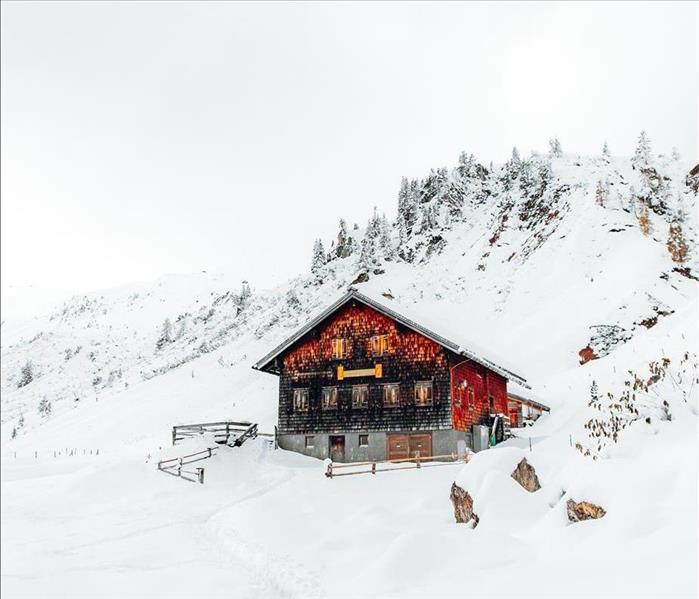Preserving Your Cabin: The Importance of Turning Off Water When You're Away
7/24/2023 (Permalink)
Owning a cabin tucked away in a serene, natural setting is a dream come true for many. However, with the beauty of cabin life comes a responsibility to protect your property, especially when it's left unattended for extended periods. One of the most crucial tasks cabin owners must undertake before leaving is turning off the water supply. In this blog, we will explore the significance of this preventive measure and how it can prevent potential disasters such as burst pipes and water damage, ultimately ensuring that your cabin remains a tranquil oasis for years to come.
1. Avoid Burst Pipes and Costly Repairs
One of the main reasons to turn off the water to your cabin is to avoid the nightmare of burst pipes. When a cabin sits unused for an extended period, the water inside the pipes can freeze during colder months, causing them to expand and burst. This can lead to significant water damage, not only to the pipes but also to the surrounding structures and belongings within your cabin. Repairing burst pipes can be a costly and time-consuming process, easily spoiling the joy of owning a cabin.
2. Prevent Mold and Mildew Growth
When water leaks go unnoticed, it creates an environment ripe for mold and mildew growth. Mold can spread rapidly, especially in damp and dark areas such as basements or hidden corners of your cabin. Not only does mold pose health risks to occupants, but it can also cause irreversible damage to the cabin's structure and belongings. By turning off the water, you eliminate the possibility of leaks and reduce the risk of mold infestation.
3. Conserve Water and Energy
Turning off the water supply to your cabin is not only about preventing damage; it's also an eco-conscious decision. By shutting off the water when you're away, you reduce water wastage and contribute to water conservation efforts. Moreover, you save energy by ensuring that your water heater isn't constantly working to maintain the water temperature while the cabin is unoccupied.
4. Avoid Unpleasant Surprises
Nothing ruins a relaxing getaway to your cabin like discovering water damage or a flooded interior upon arrival. Turning off the water before leaving ensures that you won't be greeted by any unpleasant surprises. Instead, you can focus on enjoying your time at the cabin without worrying about potential repairs and costly cleanup.
5. Peace of Mind
Knowing that you've taken the necessary precautions to protect your cabin from water-related disasters provides peace of mind. Whether you're away for a few weeks or several months, you can rest assured that your cabin is safe from water damage. This peace of mind also allows you to fully embrace the joy of cabin ownership, appreciating the beauty of nature and the tranquility it offers.
6. Simple Steps to Turn Off Water
Turning off the water supply to your cabin is a relatively simple process. Start by locating the main shut-off valve, which is typically located near the water meter. Turn the valve clockwise until it is fully closed. Once the water is off, open all faucets and flush toilets to drain any remaining water from the pipes. Additionally, consider draining your water heater to prevent any potential issues while you're away.
A cabin represents more than just a structure; it's a place of solace and cherished memories. To preserve this haven and protect it from water-related disasters, turning off the water before leaving is of utmost importance. By doing so, you prevent burst pipes, water damage, mold growth, and high repair costs. Additionally, you contribute to water conservation efforts and enjoy the peace of mind that comes with knowing your cabin is safe and secure while you're away. Take the simple step of turning off the water, and your cabin will continue to be a cherished retreat for generations to come.



 24/7 Emergency Service
24/7 Emergency Service
